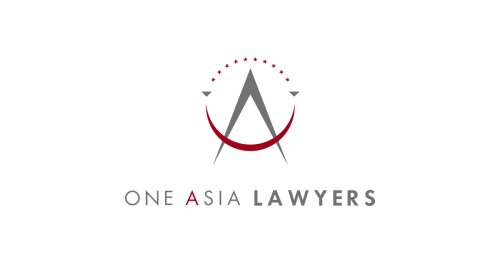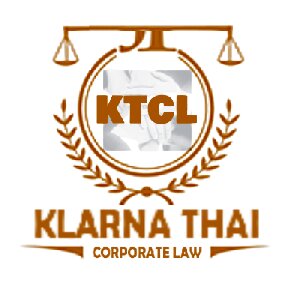Best Sexual Harassment Lawyers in Watthana
Share your needs with us, get contacted by law firms.
Free. Takes 2 min.
List of the best lawyers in Watthana, Thailand
About Sexual Harassment Law in Watthana, Thailand
Sexual harassment is a serious issue that affects people in workplaces, schools, and public spaces, including the Watthana district of Bangkok, Thailand. The law in Thailand addresses both direct and indirect forms of sexual harassment. It encompasses unwelcome sexual advances, requests for sexual favors, and other verbal or physical conduct of a sexual nature that can create a hostile, intimidating, or offensive environment. Both men and women can be victims or perpetrators. Increased public awareness and legal reforms have aimed to protect individuals and provide avenues for redress and justice.
Why You May Need a Lawyer
Consulting a lawyer can be crucial in a variety of situations relating to sexual harassment in Watthana. Common scenarios include:
- Experiencing inappropriate behavior at work, school, or public areas.
- Facing threats or retaliation after reporting harassment.
- Being accused of sexual harassment and needing to defend yourself.
- Feeling uncertain about your legal rights and next steps.
- Seeking compensation or disciplinary action against a perpetrator.
- Wanting guidance on how to document incidents or collect evidence.
- Understanding complex workplace or institutional policies related to sexual misconduct.
Legal professionals play a vital role in protecting your interests, ensuring due process, and helping you navigate sensitive and sometimes intimidating proceedings.
Local Laws Overview
Thailand’s legal framework covers sexual harassment through labor, criminal, and civil laws. In Watthana, which follows national laws, key aspects include:
- Labour Protection Act: Employers must ensure a safe working environment free from sexual harassment. Victims can file complaints with the Department of Labour Protection and Welfare.
- Criminal Code: Certain acts of sexual harassment, especially those involving physical contact or coercion, may be prosecuted as criminal offenses. Penalties can include fines and imprisonment.
- Protection of Victims: Victims have a right to privacy, support, and non-retaliation. Employers and institutions have a legal duty to investigate and remedy credible claims.
- Civil Code: Victims may claim damages for emotional distress or reputational harm resulting from sexual harassment.
- Procedural Rights: Complaints can be made to authorities, workplaces, schools, or directly to police, depending on the context.
- School and University Policies: Educational institutions are obliged to have mechanisms for reporting and addressing harassment.
Understanding your options under these local laws is important for taking effective action.
Frequently Asked Questions
What constitutes sexual harassment in Watthana?
Sexual harassment includes any unwelcome sexual advances, requests for sexual favors, or other verbal, non-verbal, or physical conduct of a sexual nature that causes offense, humiliation, or a hostile environment for the victim.
Can both men and women be victims or perpetrators?
Yes, the law recognizes that both men and women can be victims or perpetrators of sexual harassment.
Where can I report sexual harassment in Watthana?
You can report to your workplace's human resources department, the nearest police station, the Department of Labour Protection and Welfare, or relevant school or university authorities.
Is anonymous reporting allowed?
Some workplaces and institutions provide channels for anonymous reporting, but official investigations usually require the identity of the complainant in order to proceed.
What evidence is helpful in proving sexual harassment?
Useful evidence includes emails, text messages, voice recordings, witness statements, CCTV footage, and detailed written accounts of incidents.
What protections exist against retaliation?
Thai labor laws prohibit retaliation against individuals who file complaints of sexual harassment. Victims are entitled to protection from dismissal or punishment due to reporting harassment.
What penalties can perpetrators face?
Penalties vary depending on the severity and specifics of the case but may include fines, imprisonment, job dismissal, or mandatory training on sexual harassment.
Can I seek compensation for damages?
Yes, victims can claim damages through civil proceedings for psychological distress, loss of reputation, or other harms suffered as a result of sexual harassment.
Are there specific laws for students or educational institutions?
Yes, universities and schools in Watthana are required to have policies and procedures for handling sexual harassment, and students can report directly to school authorities.
Should I consult a lawyer before making a complaint?
While not mandatory, consulting a lawyer can help you understand your rights, gather evidence, and navigate the process effectively and with greater confidence.
Additional Resources
If you need support or more information, the following resources may be helpful:
- Department of Labour Protection and Welfare (Bangkok branches serve the Watthana district)
- Watthana District Police Station
- Ministry of Social Development and Human Security
- Women and Men Progressive Movement Foundation
- Thai Lawyers Council
- Legal Aid Centres in Bangkok
- Local hospitals or counseling centers specializing in trauma
These organizations can provide legal, psychological, and practical assistance for those affected by sexual harassment.
Next Steps
If you or someone you know is experiencing sexual harassment in Watthana, consider taking these steps:
- Document all incidents clearly, noting dates, times, and any witnesses.
- Consult a qualified lawyer who understands Thai sexual harassment law, preferably one who practices in the Watthana district.
- Report the incident to the appropriate authority or your workplace's human resources department.
- Seek support from family, counselors, or victim support organizations to address emotional and psychological impacts.
- Follow up on any actions taken and request updates from investigating bodies.
Prompt action protects your rights and can prevent further harm. A legal professional can help you make informed decisions while guiding you through each stage of the process.
Lawzana helps you find the best lawyers and law firms in Watthana through a curated and pre-screened list of qualified legal professionals. Our platform offers rankings and detailed profiles of attorneys and law firms, allowing you to compare based on practice areas, including Sexual Harassment, experience, and client feedback.
Each profile includes a description of the firm's areas of practice, client reviews, team members and partners, year of establishment, spoken languages, office locations, contact information, social media presence, and any published articles or resources. Most firms on our platform speak English and are experienced in both local and international legal matters.
Get a quote from top-rated law firms in Watthana, Thailand — quickly, securely, and without unnecessary hassle.
Disclaimer:
The information provided on this page is for general informational purposes only and does not constitute legal advice. While we strive to ensure the accuracy and relevance of the content, legal information may change over time, and interpretations of the law can vary. You should always consult with a qualified legal professional for advice specific to your situation.
We disclaim all liability for actions taken or not taken based on the content of this page. If you believe any information is incorrect or outdated, please contact us, and we will review and update it where appropriate.












